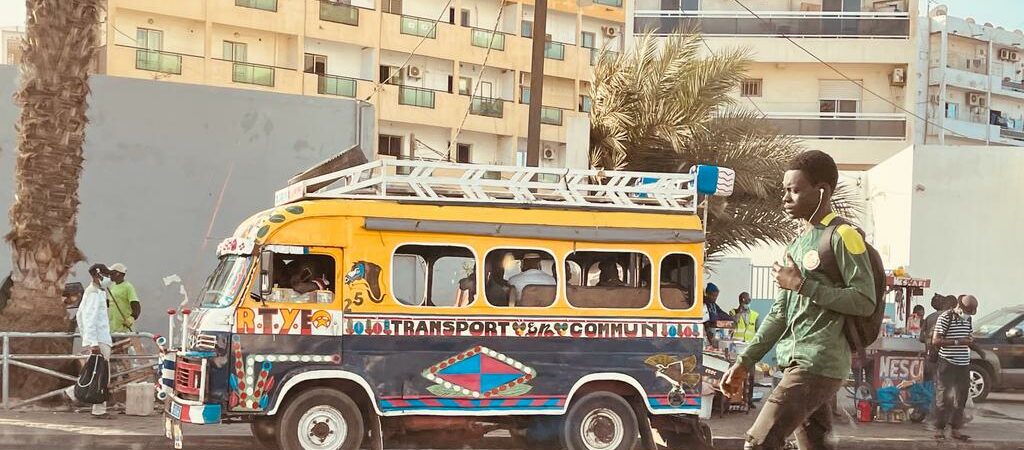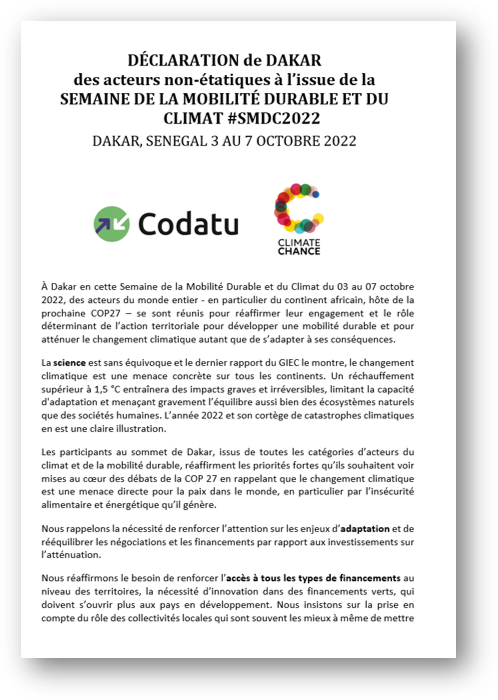
The Dakar Declaration: CODATU’s strategic and methodological toolbox
Interview with Jean Jacques Helluin General Delegate
“Realities have emerged over time, supporting and guiding our recommendations to developing and emerging countries.
In Dakar last October, we confronted these convictions with the opinions of our institutional and private partners. It is in this way, and on the basis of their support, that the Dakar Declaration came into being.
In it, we address each category of stakeholder in turn, that are national governments of developing and emerging countries, local governments and authorities of cities in the “South” in charge of urban mobility, international financial institutions, national and local governments of countries in the “North”.
More than a plea, the Dakar Declaration is a kind of strategic and methodological toolbox. It presents and argues the prerequisites supported by CODATU in the implementation of any urban or peri-urban mobility policy.
The absolute necessity to financially support urban development is one of our major prerequisites. Indeed, urban planning and sustainable mobility have been neglected for too long, by the cities themselves and in the strategies of the major international donors.
Historically, financiers have been more than cautious in the face of the complexity and sometimes opacity of cooperation with large cities. The only exceptions to this rule are the World Bank, for example, which in Dakar in 1973 financed the “quartiers parcelles assainies” operation, and the Agence Française de Développement, which very quickly identified this shortcoming and deployed actions aimed at the large cities of the “South”.
Moreover, funding systems were mainly oriented towards rural areas, with the aim of fighting famine in developing countries. This vision has ended up generating a form of “anti-urban” ideology that CODATU is actively fighting against, while many cities in the South are confronted with galloping demography and uncontrolled urban sprawl.
It is true that the results of urban projects are less visible in the short term than actions around water and agriculture. But they are in line with demographic trends. Thus, a United Nations study in 2018 recalled the increase from 33 million urban dwellers in Africa in 1950 to 286 million in 2000 and a forecast of 1.5 billion in 2050. There is no doubt that sustainable mobility planning will have to play a decisive role.
CODATU is also committed to a better adaptation of the financing modalities to the needs of the inhabitants. These needs are sometimes modest, but taking them into account is crucial. Indeed, improving mobility does not only consist in building a tramway or an underground line. It can simply be achieved by restructuring and improving existing networks.
This is the case, for example, of paratransit, which has been confirmed throughout history as a suitable and efficient solution in many countries. The professionalisation of paratransit is one of the key recommendations that CODATU is making to its partners.
Thus, the Dakar Declaration symbolises the in-depth evolution of CODATU, which wants to act not only on the fundamentals of sustainable mobility, but also on an even more operational, more qualified and quantifiable level. Moreover, the creation of an “Observatory of Sustainable Mobility in the cities of the “South” is on the agenda at CODATU, thus demonstrating its marked willingness to carry and follow up the major orientations of the Dakar Declaration on the ground, alongside local authorities and governments.
The Dakar Declaration (for download)

